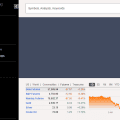We live in a fast-paced society. If you’ve ever had the feeling your to-do list grows increasingly longer while the days seem to fly by faster than ever, you’re not alone. Even consumers with a goal of learning more about personal finance can find it challenging to stay truly updated.
So, what are today’s best sources of savvy financial advice? Consumers will surely have different preferences based on their lifestyles and learning styles, but here are three tips to consider.

Table of Contents
Utilize Social Media
Sure, social media is the place you go for pet pictures, memes and pictures of your friends’ vacations. But you can also make it a hub for fueling your financial literacy. Financial literacy entails having the ability to budget, repay debt, save for retirement, invest and other important money-centric activities. All of these actions are important for achieving self-sufficiency.
Luckily, the financial thought leaders of today are creating content for their audiences chock full of advice and resources. But true financial literacy is a journey; not a destination. It entails keeping up on the latest developments in the financial world and updating your personal framework accordingly. Learning doesn’t occur overnight, nor is it achievable by checking out a single book from the library.
The ubiquitous nature of modern social media can be a huge help here. After all, most people already have a smartphone complete with several social media apps on their home screens. You’re already scrolling various feeds, whether you’re a Facebook fiend or an Instagram influencer. Why not incorporate savvy financial advice into the equation?
Following a healthy mix of financial experts, thought leaders, consumer organizations and financially focused media outlets will help you consumer a variety of perspectives. To get the most bang for your buck, look for people who create original content and repost interesting links. For example, CEO of Freedom Financial Asset Management Andrew Housser retweets sources like Forbes, Wall Street Journal, and MSN Money to help his followers stay informed on financial trends that may affect them.
Listen to Financial Podcasts
More people are turning toward podcasts for entertainment and learning on the go. It’s a great medium because your hands are free, so you can pop on a podcast when you’re cleaning the house or driving to work.
This medium also tends to be highly digestible, making it a great way to absorb otherwise dense information in a palatable way. You can also press pause if you need to take a break, returning to the content only when you’re ready to listen.
With so many notable financial podcasts from which to choose, you can find subject matter presented by hosts you trust and respect. Something as simple as incorporating even one podcast into your weekly routine can go a long way in boosting your overall financial literacy and keeping you abreast on current events in the financial world.

Aggregate Your News Consumption
Does the idea of having to round up your own relevant articles sound daunting? Try a news aggregator, also known as a customizable tool that gathers relevant headlines for your consumption.
Over time, you can refine your settings to make sure you’re consistently rounding up the types of articles most beneficial to you. Some aggregators even allow you to set alerts, so you can stay truly up-to-date.
The primary benefit here is that you can read these articles on your own time without having to stay tuned into the news cycle 24/7.
With these three tips for staying current on financial advice, you can figure out which methods align best with your lifestyle and financial goals.

























Being financial savvy is different for different people. To be financially savvy we need to have a plan for the future and manage the cash flow with the budget. The budget and a long-term plan clarifies the goal and guide so we can avoid leaving finances to chance.